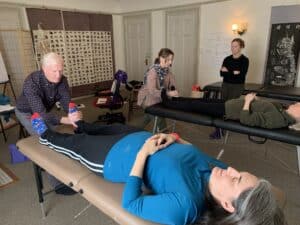At some point in our lives, most of us have experienced some type of sleep disturbance. Whether we have trouble quieting our racing minds enough to fall asleep or we wake several times throughout the night, facing the day after a poor night’s sleep can be a struggle. For those with chronic insomnia, getting adequate, restful sleep is a constant concern. In the long term, lack of sleep can lead to a host chronic health issues – heart, immune and brain function, to name a few.
The causes of sleep disturbance are complex, and finding solutions can be equally complex. Most people prefer to avoid pharmaceutical medications for insomnia; some are addictive and many are notorious for side effects. Tips for combating insomnia are everywhere—the use of supplements, herbal teas, stretching, mindfulness, and other behavior modifications to promote restfulness are common ways that you can try to increase the duration and quality of your sleep.
Acupuncture is an effective way of finding relief from insomnia, as it has long been used in Asian countries. Let’s take a closer look at why high-quality sleep is important and how acupuncture can address sleep disturbances and help you feel more rested.
Why We Need High-Quality Sleep
As a nation, we tend to be sleep-deprived. According to a poll by the National Sleep Foundation, over half of respondents reported experiencing at least one symptom of insomnia—difficulty falling asleep, waking multiple times a night, early rising, or waking up feeling groggy—at least a few times per year. A third of respondents who reported experiencing sleep disturbances said they’d experienced at least one of these symptoms for a few nights per week (or almost every night) over the entire year.
Without an adequate amount of sleep, we are more likely to feel fatigued during the day. Those with insomnia may be more prone to depression, anxiety, and other mood disorders. Chronic lack of sleep undermines nearly every aspect of your health. Poor sleep may contribute to high blood pressure and heart issues, such as atrial fibrillation (afib). Lack of sleep can also disrupt hormonal cycles, triggering insulin resistance (pre-diabetes) and lead to weight gain, lethargy, and other undesirable consequences.
What the Research Says
Acupuncture has been widely used to address insomnia, particularly in China and other Eastern countries. A 2009 review study concludes that acupuncture appears to be effective in treating insomnia. Additionally, acupuncture creates a relaxation response, easing tension and anxiety. Clients often find that it’s easier to fall and stay asleep following an acupuncture treatment.
If you are struggling with obstructive sleep apnea, take note. Recent research indicates that acupuncture can be as effective as the standard treatment (cPAP machine) in increasing blood oxygenation and reducing sleep disruption. Many patients find cPAP machines cumbersome to use, so acupuncture represents a valid alternative treatment with many added benefits.
Perhaps most promisingly, acupuncture was determined to be more effective than medications in increasing the total sleep duration for patients. While more studies are needed in order to fully understand acupuncture’s effect on insomnia, the evidence so far has shown great promise.
Promoting a Good Night’s Sleep
If you have been struggling with poor sleep, anxiety, depression or fatigue, Five Element acupuncture offers a wide range of benefits. It approaches insomnia from a holistic perspective, restoring balance in body, mind, and spirit. Five Element acupuncture also addresses the underlying physical and emotional issues that may be contributing to your insomnia, such as sleep apnea, pain or hormonal imbalance. It allows you to gently guide your body and mind back into harmony, promoting deep, restorative rest.



